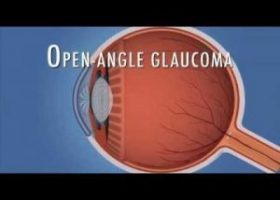- Home
- Editorial
- News
- Practice Guidelines
- Anesthesiology Guidelines
- Cancer Guidelines
- Cardiac Sciences Guidelines
- Critical Care Guidelines
- Dentistry Guidelines
- Dermatology Guidelines
- Diabetes and Endo Guidelines
- Diagnostics Guidelines
- ENT Guidelines
- Featured Practice Guidelines
- Gastroenterology Guidelines
- Geriatrics Guidelines
- Medicine Guidelines
- Nephrology Guidelines
- Neurosciences Guidelines
- Obs and Gynae Guidelines
- Ophthalmology Guidelines
- Orthopaedics Guidelines
- Paediatrics Guidelines
- Psychiatry Guidelines
- Pulmonology Guidelines
- Radiology Guidelines
- Surgery Guidelines
- Urology Guidelines
Initial multitherapy better than monotherapy in Glaucoma

A new study published in the journal Acta Opthamologica suggests that intensive treatment led to considerably greater intraocular pressure(IOP)reduction than mono‐therapy in the patient with open-angle glaucoma. The study showed that among patients with IOP ≥30 mmHg at diagnosis, an IOP of <16 was reached in 2/3 of those with multi-therapy but in none with monotherapy.
Linden et al. studied newly diagnosed glaucoma patients given mono- or multi-therapy regarding differences in initial intraocular pressure (IOP) reduction, target IOP levels reached and influence of untreated baseline IOP on IOP reduction.
Read Also: Study suggests glaucoma may be an autoimmune disease
The study participants included in the Glaucoma Intensive Treatment Study (GITS) were randomized to immediate intensive treatment with any of three different IOP-lowering substances supplied in two bottles plus 360° laser trabeculoplasty or to conventional stepwise treatment starting with a single-drug. Intraocular pressure reduction was analyzed 1 month after initiation of treatment. One hundred eighteen patients (143 eyes) received mono-therapy and 122 patients (152 eyes) multi-therapy. Median baseline IOP was 24.0 mmHg in mono-therapy eyes and 24.0 mmHg in multi-therapy eyes.
The key study findings include:
- After 1 month in the two groups, respectively, values for median IOP reduction were 6.3 and 11.0 mmHg, and for mean relative decline 26.8 and 46.0 %.
- A larger proportion of the multi-therapy patients reached each target IOP level.
- The higher the baseline IOP, the larger the observed pressure reduction, considering both absolute and relative figures.
- The effect was more pronounced in eyes with multi-therapy than in those with monotherapy.
- For every mmHg higher IOP at baseline, the IOP was reduced by an additional 0.56 (mono-therapy) or 0.84 (multi-therapy) mmHg.
Read Also: A Promising Option for IOP Reduction in Glaucoma
"Our results demonstrate that, compared to the mono‐therapy, the initial intensive treatment was considerably and significantly more effective in achieving overall IOP reduction in OAG patients. Short‐term mean IOP reduction among multi‐therapy patients was about 5 mmHg greater than in patients who received conventional treatment, "write the authors.
For reference log on to https://doi.org/10.1111/aos.13790

Disclaimer: This site is primarily intended for healthcare professionals. Any content/information on this website does not replace the advice of medical and/or health professionals and should not be construed as medical/diagnostic advice/endorsement or prescription. Use of this site is subject to our terms of use, privacy policy, advertisement policy. © 2020 Minerva Medical Treatment Pvt Ltd